
Bitter-sweet Home Alabama
By Laura Gelder, August 2020
As the Black Lives Matter movement ignited in the U.S. this spring, Laura Gelder reflected on the important lessons she learnt on the Civil Rights Trail in Alabama
Since the horrific killing of George Floyd in Minneapolis and amidst the protests and the riots; the sadness and the anger, one place has come to my mind and one moment that took place there. The place is Selma, Alabama and the moment, well, I’ll get to that later.
It was 2012 and my copy of To Kill a Mockingbird was pretty much my only reference point for racial inequality in the south, as I started my journey on the Civil Rights Trail.
A hot and sultry Sunday afternoon greeted me and I was just in time for dinner in Sturdivant Hall – the grandest of Selma’s buildings, tucked away amongst quiet backstreets lined with trees dripping in Spanish moss. The mansion was built by slaves in the 1850s and showcases the days when Southern hospitality was in full swing, but its beautiful rooms made me feel distinctly uncomfortable as I sipped iced tea amongst the ill-gotten gains of the cotton industry.
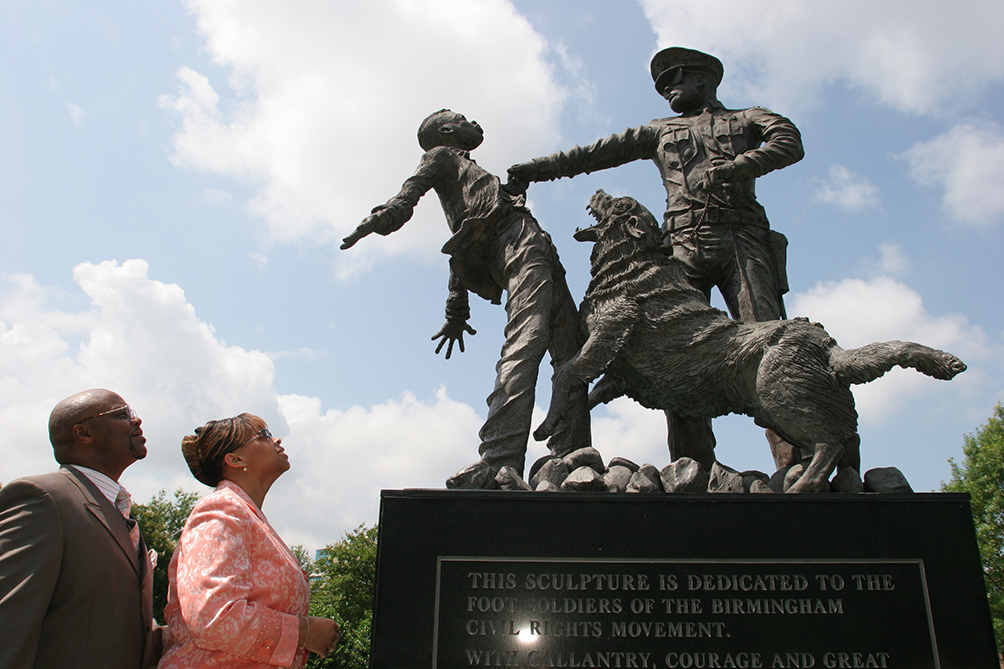
Joanne told us about growing up in Selma, where she wasn’t allowed in the ice cream parlour. By the time she was 11 she had been arrested 13 times
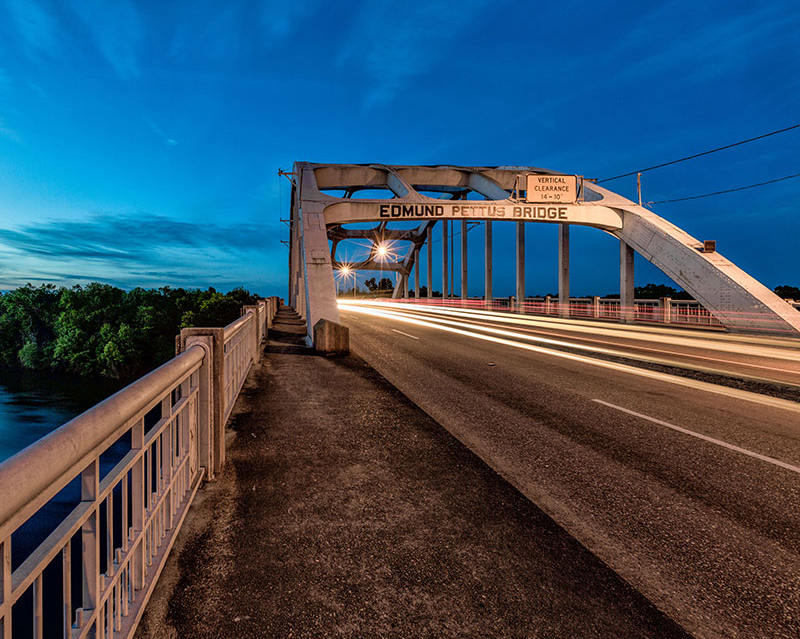
The next day I met tour guide Joanne in the comfortingly grease-scented Downtowner diner and I knew she wasn’t going to pull any punches as I tucked into a plate of cheesy grits and she told me: “Girl, you gonna get fat”.
Joanne told us about growing up in a segregated Selma, where she wasn’t allowed in the ice cream parlour. By the time she was 11 she had been arrested 13 times and she was one of the youngest people to participate in Bloody Sunday.
This historic day in 1965 was when hundreds of black citizens started a march from Selma to the state capital Montgomery to protest against their constitutional right to vote being denied through intimidation. As they went to cross the Edmund Pettus Bridge they were met by policemen and when they refused to turn their peaceful parade around they were brutally beaten with sticks, charged with horses and tear gassed.
A Victory of Sorts
The pictures of this police brutality were beamed all around the world, causing outrage and prompting President Johnson to pass the Voting Rights Act which prohibited racial discrimination during elections.The continued presence of this symbolic structure, sadly, had not raised all the fortunes or spirits of this predominantly black town. Breaking past the tourist drag, I found block after block of dilapidated, boarded-up houses, weeds poking through decks and cracked pavements.
Continuing on the trail, in Montgomery I visited a museum dedicated to Rosa Parks, the woman who refused to give up her bus seat for a white person and sparked the town’s black residents, who made up three quarters of the buses’ customers, to boycott them for over a year, facing threats and intimidation at every turn. The economic effect of their civil disobedience lead to a new law allowing black citizens to sit where they wanted on the bus.
At Birmingham’s Civil Rights Institute we saw a dark side to the 1950s America we’d seen in movies like Grease – where black Americans were forbidden to enter the milkshake bars, play sport with white Americans or even use the same washrooms as them.
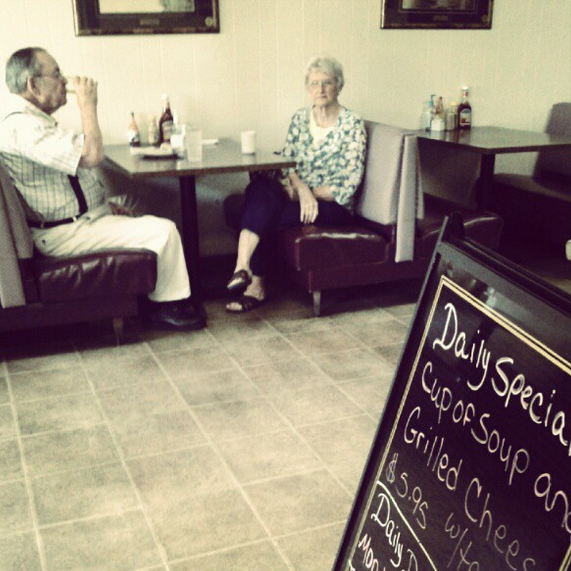
I visited the 16th Street Baptist Church, which housed a black-only congregation and was a centre for the city’s civil rights campaigners in the 1960s. I watched a joyful service where ladies in elegant dresses with coiffed hair and spotless white gloves danced, sung and clapped along with a gospel choir. They stood just above the basement where Addie Mae Collins, Cynthia Wesley, Carole Robertson (all 14 years old) and Carol Denise McNair (11) were murdered by a bomb planted by the Ku Klux Klan in 1963. It was a bomb so fierce that it decapitated one victim, created a five foot crater in the church and blew a passing motorist out of his car.
We learnt that the city was nicknamed ‘Bombingham’ for the sheer amount of explosions it saw during a terror campaign which was waged on the black community for daring to move into so-called white neighbourhoods or challenge segregation.
We read Dr. Martin Luther King Jr.’s letter from Birmingham Jail, where he was locked up for leading a peaceful march without a permit. In it he calls Birmingham ‘the most segregated city in the United States’ with an ‘ugly record of police brutality’.
It’s tragic how relevant Dr. Martin Luther King Jr.’s letter from Birmingham Jail still is when you consider this year’s anti-racism marches
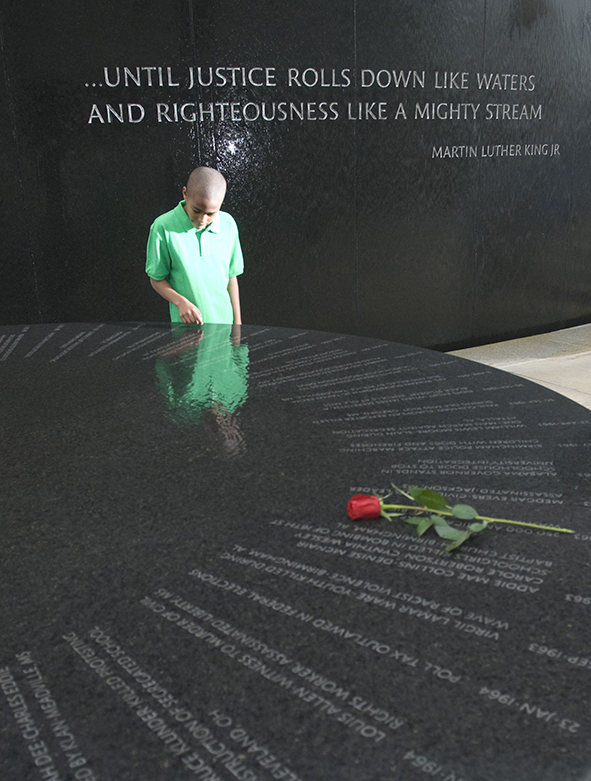
Echoes of the past
It’s tragic how relevant the letter still is in light of the recent anti-racism marches. In it he addresses those who deplore protests, saying: “I am sorry that your statement didn’t express a similar concern for the conditions that brought the demonstrations into being.”
He addresses religious leaders and talks of his disappointment in “the white moderate who is more devoted to order than to justice” and how it’s easy for those who have never experienced inequality to ask those who have to be calm and wait for action.
I wonder what he would think of today’s America. Each time I see the image of the policeman who knelt on George Floyd’s neck for nearly nine minutes, his face blank and unconcerned, I’m reminded of the moment in Selma when I realised that racism was not consigned to history.
I was in a tour bus and Joanne was pointing out something, when I noticed a white man on the street corner waving. “I think that guy knows you, Joanne,” I said.
She told me quite casually that he was a racist and he was always there, complaining about her tours blocking the streets and trying to stop her telling her story. And then she told me to just wave right back, before getting on with telling her story.
Make it count
The U.S. Civil Rights Trail spans 15 states and over 100 poignant sites. Visit some on your next trip to the U.S.
Queensboro, North Carolina
In 1960 four students were refused service at a lunch counter in a Woolworth’s. They refused to leave in protest and over the next three days more than 300 students joined.
Mims, Florida
This little town near Orlando is where, in the 1930s/40s, two teachers fought for equal pay and investigated lynchings and police brutality before being murdered.
Sumner, Mississippi
Site of a pivotal case in the Civil Rights Movement – the brutal murder of 14-year-old Emmet Till and the trial which, unbelievably, saw his killers acquitted.
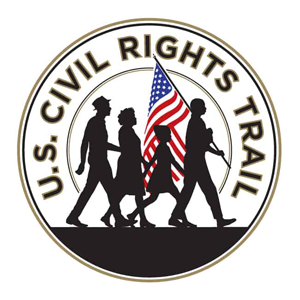
Little Rock, Arkansas
In 1957 the town’s governor called in the state National Guard to stop black students from entering the high school and President Eisenhower sent federal troops to give the students safe passage
Atlanta, Georgia
Dr. Martin Luther King Jr. grew up here in a time of strict segregation. Visit his birth home, Ebenezer Baptist Church where he first preached his message of peace, the Center for Civil and Human Rights, and many more important sites.
Fight racism here.
Show Racism the Red Card is an anti-racism educational charity offering workshops and training and using famous football players to spread the word in the UK.
This is a feature from Issue 1 of Charitable Traveller. Click to read more from this issue.









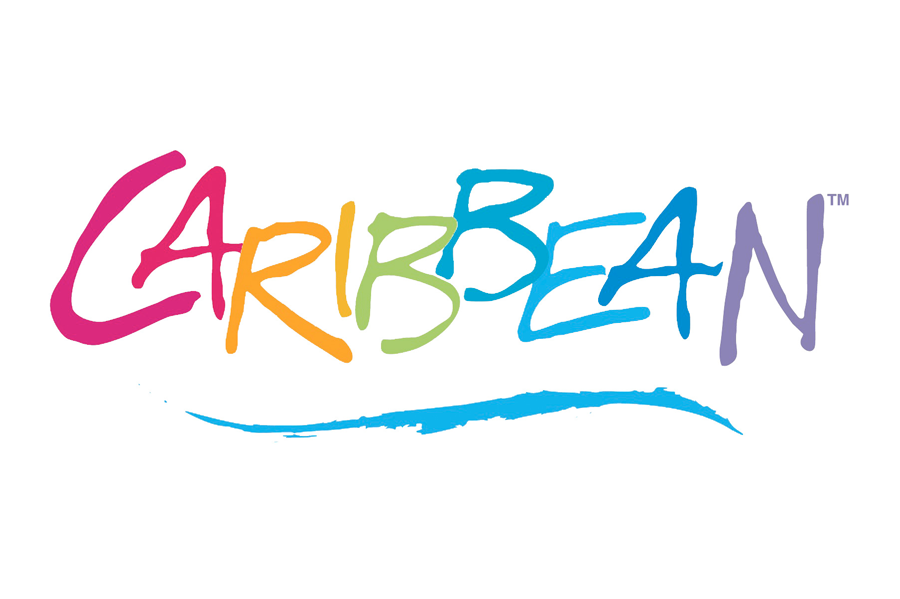







 by net effect
by net effect